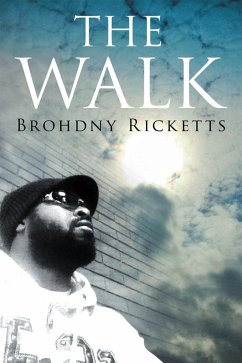
Shielded by God'S Power (eBook, ePUB)
The Survival Kit: Surviving Satanic Forces
Versandkostenfrei!
Sofort per Download lieferbar
2,99 €
inkl. MwSt.
Weitere Ausgaben:

PAYBACK Punkte
1 °P sammeln!
Domestic violence is defined by the National Coalition Against Domestic Violence as the willful intimidation, physical assault, battery, sexual assault, or other abusive behavior that is used to overpower and control another person. Domestic violence takes on many forms, both visible and hidden. And according to studies, it affects one person every twenty seconds. Domestic violence is not a new problem in America but is one that has sadly existed for decades. And while the majority of victims are female, domestic violence knows no income bracket, demographic, age, race, or religion; domestic v...
Domestic violence is defined by the National Coalition Against Domestic Violence as the willful intimidation, physical assault, battery, sexual assault, or other abusive behavior that is used to overpower and control another person. Domestic violence takes on many forms, both visible and hidden. And according to studies, it affects one person every twenty seconds. Domestic violence is not a new problem in America but is one that has sadly existed for decades. And while the majority of victims are female, domestic violence knows no income bracket, demographic, age, race, or religion; domestic violence occurs in every facet of society. Despite the many groups working to help victims of domestic abuse, the problems persist. Domestic violence is more commonly seen in situations where someone (the abuser) believes that behaviors such as physical, verbal, emotional, religious, sexual, or economical abuse is acceptable and justifiable. Adding to the perceived justification of abuse is the victims inability to see the denigrating acts as abuse. Then when they do identify the problem, they feel trapped by their circumstancesbe it due to fear, lack of funds, poor physical condition, or various psychological issuesand are unable to leave the situation. More disturbing than the obvious problems of domestic abuse is that there have been connections made between domestic violencespecifically sexual abuse in childrenand satanic influences/forces. This type of abuse is referred to as satanic ritual abuse (SRA). The abuses suffered due to satanic influences are often more severe forms of physical and sexual abuse, especially in the form of child pornography, prostitution, and being used for snuff films. These abuse victims are often so brainwashed that they dont dare speak out. And while there are those who would like to ignore the connections between abuse and satanic forces, the fact remains that abuse is not something promoted in scripture! The believer is told to care for the helpless and to lift up the fallen, not knock them down and beat them up. In homes where children are abused, they often grow up to become adults who struggle with relationships, authority figures, and problem-solving. Worse, abused children often become adult abusers, thus perpetuating the problem. Studies have also found that children who see their mother abused are more likely to develop PTSD (post-traumatic stress disorder). Also interesting is that there is now a correlation between childhood domestic violence and adult health conditions like arthritis, ischemic heart disease (IHD), chronic obstructive pulmonary disease (COPD), liver disease, irritable bowel syndrome, chronic pain, pelvic pain, ulcers, and migraines. Psychological challenges include depression, severe anxiety panic attacks, and a feeling of worthlessness. As you read Ivys story, you will discover that she could easily be the poster child for domestic violence. She spent fifteen years living in a situation where mental, physical, emotional, and sexual abuse were part of her daily life. She then entered a marriage that ultimately, albeit differently, was more of the same. But Ivys story does not end as it began. She heard about a Savior who loved her unconditionally. And while initially Ivy did not understand her Saviors love, in time, she learned the meaning of real love and acceptance. As you read her story, you will see how she looked and worked to eventually overcome the challenges brought on by domestic abuse. If you have been abused or know someone who is or has been in an abusive situation, then Ivys story can help. It will provide hope and help as you see that while domestic abuse is horrific, there is one who can overcome the hold abuse has on a persons life. Dont let abuse keep you or a loved one from enjoying life. Take the step now to begin the first day of the rest of your life.
Dieser Download kann aus rechtlichen Gründen nur mit Rechnungsadresse in A, D ausgeliefert werden.













